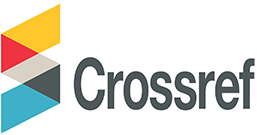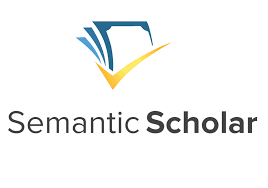Multilingualism and Cognitive Flexibility: Insights from Neuroscience and Linguistics
##semicolon##
https://doi.org/10.69760/aghel.024047##semicolon##
Multilingualism##common.commaListSeparator## Cognitive Flexibility##common.commaListSeparator## Bilingual Advantage##common.commaListSeparator## Task-Switching##common.commaListSeparator## NeuroplasticitySantrauka
This paper explores the relationship between multilingualism and cognitive flexibility, examining the cognitive benefits associated with managing multiple languages. Drawing on both neuroscientific and linguistic studies, the paper argues that multilingual individuals exhibit enhanced cognitive flexibility, superior executive control functions, and improved task-switching abilities. These advantages, often referred to as the "bilingual advantage," extend beyond language use and positively impact problem-solving, decision-making, and mental adaptability. The paper also highlights the long-term benefits of multilingualism, such as delayed cognitive decline and greater neuroplasticity, particularly in older adults. Furthermore, it addresses the practical implications of promoting multilingual education in early childhood to enhance cognitive development and foster global citizenship. The paper concludes with suggestions for future research, emphasizing the need for interdisciplinary collaboration to further understand the cognitive and societal impacts of multilingualism.
##submission.citations##
Achaa-Amankwaa, P., Kushnereva, E., Miksch, H., Stumme, J., Heim, S., & Ebersbach, M. (2023). Multilingualism is associated with small task-specific advantages in cognitive performance of older adults. Scientific Reports, 13(1), 16912.
Claussenius‐Kalman, H. L., & Hernandez, A. E. (2019). Neurocognitive effects of multilingualism throughout the lifespan: A developmental perspective. The handbook of the neuroscience of multilingualism, 655-684.
Fürst, G., & Grin, F. (2023). Multilingualism, multicultural experience, cognition, and creativity. Frontiers in Psychology, 14, 1155158.
Greve, W., Koch, M., Rasche, V., & Kersten, K. (2024). Extending the scope of the ‘cognitive advantage’hypothesis: multilingual individuals show higher flexibility of goal adjustment. Journal of Multilingual and Multicultural Development, 45(4), 822-838.
Liu, H., Fan, N., Rossi, S., Yao, P., & Chen, B. (2016). The effect of cognitive flexibility on task switching and language switching. International Journal of Bilingualism, 20(5), 563-579.
Mepham, K. D., & Martinovic, B. (2018). Multilingualism and out-group acceptance: The mediating roles of cognitive flexibility and deprovincialization. Journal of Language and Social Psychology, 37(1), 51-73.
Quinteros Baumgart, C., & Billick, S. B. (2018). Positive cognitive effects of bilingualism and multilingualism on cerebral function: A review. Psychiatric Quarterly, 89(2), 273-283.
Tsimpli, I. M., Vogelzang, M., Balasubramanian, A., Marinis, T., Alladi, S., Reddy, A., & Panda, M. (2020). Linguistic diversity, multilingualism, and cognitive skills: A study of disadvantaged children in India. Languages, 5(1), 10.
##submission.downloads##
Publikuota
Numeris
Skyrius
##submission.license##
##submission.copyrightStatement##
##submission.license.cc.by-nc-nd4.footer##






